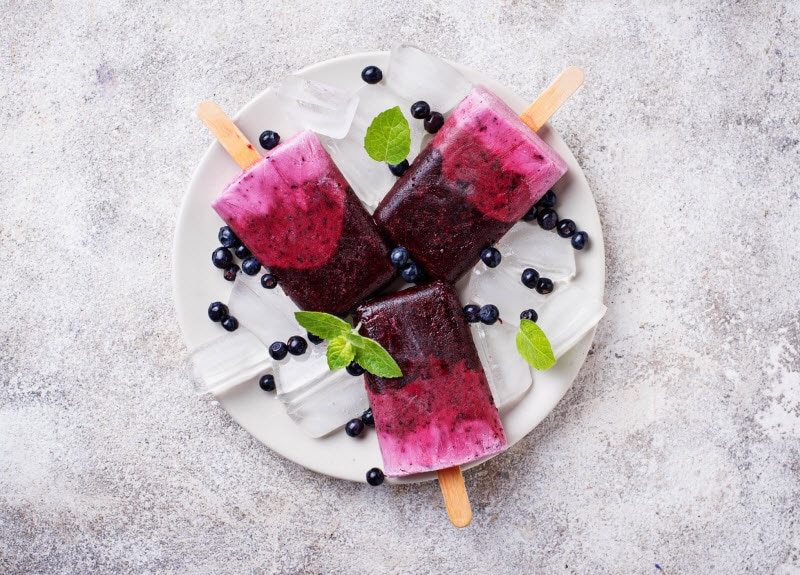You’ve probably read about elderberries’ immune-supportive properties, but, but you may not be aware of their usefulness even when you’re not trying to fight off the sniffles. Because they’re so rich in antioxidants, consuming elderberry frequently may have other health benefits, such as supporting heart and brain health.†
Even if you’re already sold on the wonders of elderberry syrup, you may not have realized how many other things you can make with a simple bag of dried elderberries.
Elderberry syrup currently gets all the glory, but the rich, delicious flavor of elderberries can make so much more. You can get all the nutritional goodness from your elderberries in a number of other forms, and they taste so good, you might also make these elderberry concoctions just to enjoy their flavor.
Expand your elderberry repertoire with these additional ways to use elderberries.
1. Consider a decoction
Elderberry syrup, whether homemade or purchased, can be consumed on its own or used in a number of delicious recipes, but you’ll save yourself a lot of added sugar if you make something called a decoction, which is essentially just simmered elderberries, the first step in making homemade elderberry syrup.
A decoction is a very strong concentrate and can be taken by the spoonful like elderberry syrup or added to hot water to make tea. Or add it to smoothies, homemade soda, or popsicles to enjoy all the goodness of elderberries without the added sugar.
Decoctions only keep a few days, however, so don’t make a huge batch and expect to keep it on hand. You can freeze extra in ice cube trays and put them in hot water for an instant elderberry tea when you need it. The valuable nutrients you’ve extracted will degrade over time in the freezer, so use your elderberry ice cubes within a month or so if possible.
Most sources recommend simmering your berries over low heat for 20 to 30 minutes to extract the medicinal compounds and to deactivate those that can cause stomach upset. Avoid cooking at higher temperatures to preserve the compounds in the berries, which can be sensitive to high heat.
Once you’ve strained out the elderberries, you can return them to the pot and simmer them again to make a weaker tea. It won’t be as medicinally powerful, but it likely still has some beneficial compounds, and it tastes quite good.
2. Make an easy homemade soda
Use either a decoction or syrup to make a tasty homemade soda that’s refreshing and delicious even when you don’t need to fight off viruses. Add a splash to sparkling water for a beautiful purple fizzy drink you can enjoy as a healthier alternative to artificially-flavored soda.
3. Try an oxymel
A more shelf-stable alternative to homemade elderberry syrup, an oxymel is a mixture of vinegar and honey (from Latin ‘oxy,’ meaning sharp or acidic, and ‘mel,’ meaning honey). Oxymel tastes quite like balsamic vinegar and is another delicious way to take a dose of elderberries when you’re trying to support your immune health.
To make, cover ½ cup dried elderberries with 1 cup each raw honey and cider vinegar and stir to combine. Steep in a jar one month, shaking every few days. Strain and enjoy by the spoonful, or use to make a tangy vinaigrette.
4. Pop a popsicle in your freezer
Elderberry decoction or syrup can be added to fruit juice or lemonade for a tasty, antioxidant-rich summer treat. Popsicles made with elderberry are also wonderful for soothing a sore throat any time of year. To make, simply add a little decoction to your favorite juice to taste and pour into popsicle molds.
5. Infuse vinegar
Seen those fancy fruit-infused vinegars in gourmet shops? You can make your own simple and stunning homemade infused vinegar simply by steeping dried berries in wine vinegar for about a month. Strain and bottle, and enjoy in salad dressings or cooked dishes where the flavor of elderberry will add a fruity richness. Elderberry-infused vinegar also makes a great homemade gift.
6. Make your own tincture
Tinctures use alcohol to extract compounds from elderberries, and many herbalists believe they are more medicinally powerful than syrups and teas. If you want to avoid alcohol, you can also use vegetable glycerin to make something called a glycerite, though it’s not considered as effective at extracting the medicinal compounds. To make tincture, cover dried berries with a few inches of 80- to 100-proof vodka and steep for 1 to 2 months, or use glycerin if you prefer. Strain and bottle. Unlike homemade syrups, tinctures keep for years.
7. Try DIY elderberry lip balm
Elderberries have a long history of use as a dye for hair and cloth, and they work beautifully as a natural colorant for this homemade lip balm, which uses elderberry powder to add a gorgeous plum color.
Have fun experimenting with elderberries and enjoy getting a delicious dose of these powerful berries in many different forms.
†These statements have not been approved by the Food and Drug Administration. These products are not intended to diagnose, treat, cure or prevent disease.

